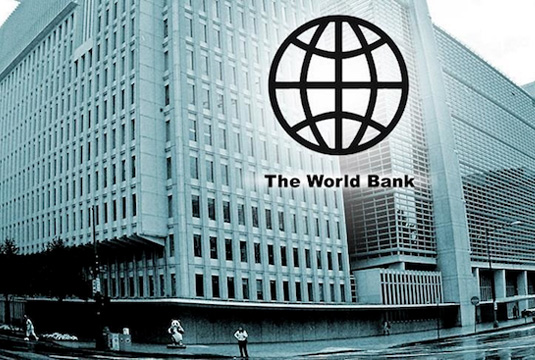Dhaka, June 29, 2018 (BSS) – The World Bank has announced nearly half a billion of US dollar grant-based support to help Bangladesh address the needs of Rohingya people in areas like health, education, water and sanitation, disaster risk management and social protection.
Reflecting the increasingly protracted nature of the Rohingya crisis, the World Bank Board of Directors on Thursday approved a US$ 50 million additional grant to an existing Health Sector Support Project in Bangladesh that is the first in a series that could total as much as US$ 480 million, said a World Bank press release received here today.
The health-sector grant includes contributions based on an innovative partnership between the government of Canada and the International Development Association (IDA), the World Bank’s fund for the poorest countries. It will help the Rohingyas receive maternal, neonatal, infant, child, and adolescent health and nutrition services, as well as reproductive
healthcare and family planning support.
“Bangladesh has shown great leadership in this evolving humanitarian crisis by providing refuge for the Rohingya people. This grant allows the World Bank Group, working in collaboration with the government of Canada, to support these efforts,” World Bank Group President Jim Yong Kim said.
He said: “We are deeply moved by the suffering of the Rohingya people and stand ready to help them until they can return home in a safe, voluntary, and dignified manner. At the same time, we are also continuing to support the Bangladeshi people and the host communities, who have shown great generosity by welcoming Rohingyas.”
The healthcare needs of the Rohingyas are vast, and their vulnerability to disease outbreaks and the prevalence of child malnutrition are high. According to surveys conducted in the camps, one in every four children is acutely malnourished.
“We are pleased to partner with the World Bank and the government of Bangladesh in providing additional support to the displaced Rohingyas in Bangladesh,” said Marie-Claude Bibeau, Minister for International Development of Canada.
“Through this innovative initiative, for every dollar contributed by Canada, five additional grant dollars will be unlocked in support of much needed health, nutrition and population services for the Rohingyas,” the Canadian Minister said.
Seasonal rains causing flooding and landslides will have important health impacts, including injuries, exacerbation of water-borne diseases, and reduced access to health services. It is estimated that about 200,000 people are at risk of landslides and floods during the monsoon season.
“Bangladesh has sheltered the Rohingya people fleeing from violence in Myanmar because it is the right thing to do for fellow human beings. But, their needs are enormous and the world needs to step up support,” said Finance Minister Abul Maal Abdul Muhith.
“The World Bank has been very prompt in supporting us with nearly half-a-billion dollars grant to help the Rohingyas with their safe, voluntary and dignified return to Myanmar. We are committed to addressing the basic needs of these unfortunate displaced people,” he said.
The World Bank Group President Jim Yong Kim, along with the United Nations Secretary General Ant¢nio Guterres, will visit Bangladesh on July 1-2 to assess the severity of the crisis and discuss what more can be done.
They will visit the Rohingya settlements in Cox’s Bazar and meet with the Prime Minister, the Finance Minister, other senior government officials, and representatives of civil society and other partners.
In addition to health challenges facing the Rohingyas, the learning needs of their highly vulnerable youth and children are emerging as another priority. About 370,000 children and youth (55 percent of the total displaced Rohingya population) need access to schooling.
An additional grant to the education project, currently under preparation, will provide basic education and psychosocial support to Rohingya children and youth. The subsequent proposed investments will be in the areas of disaster risk management, water and sanitation, environmental protection and conservation, social protection, urban services, and social
cohesion and gender.
Since August last year, more than 700,000 Rohingyas from violence in Myanmar have taken shelter in the Cox’s Bazar district in Bangladesh, making it the world’s largest and fastest growing refugee camp, and putting pressure on the environment, existing infrastructure, and social services that were already constrained.
The World Bank funding for Bangladesh to cope with the crisis will include up to US$ 400 million on grant terms to support the Rohingya population from the IDA18 Regional Sub-window for Refugees and Host Communities.



